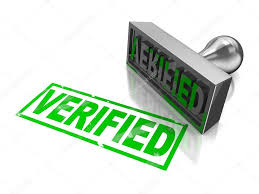Rising global energy prices are a worry for all business owners. When the cost of your predicted annual bill doubles overnight, that’s likely to stretch your cashflow extremely thin.
So, what can you do to overcome the problem of soaring electricity and gas prices? We’ve outlined five simple ways to reduce your energy bills.
Simple ways to reduce the impact of the energy crisis
The obvious way to beat the energy crisis is to reduce your company’s energy usage.
With prices sky-rocketing, cutting your energy consumption makes good sense and should help reduce your annual bill. As an added bonus, cutting down your energy consumption also makes your business more sustainable, more energy-conscious and a better global citizen.
Here are five ideas for bringing down your energy usage:
- Properly insulate your buildings – you obviously need to be sensible about heating and cooling your workspaces during the hot or cold months of the year. Using heating and air conditioning (air-con) 24/7 can be expensive, so it’s a good move to properly insulate your workspaces. If your rooms stay warmer in winter, and don’t bake in summer, your heating/air-con won’t be working so hard – reducing your energy spend.
- Be sensible with your lighting – lighting is another essential overhead, but also an area where smart gains can be made. Use energy-efficient light bulbs that draw less power. Don’t leave exterior lights on after business hours. And fit sensors in offices, meeting rooms and workshop spaces that turn off the lights if no-one is using the room. These are small actions that can quickly start to cut down your bill.
- Switch to energy-efficient equipment and technology – the business tech we use is gradually becoming greener and more energy-efficient. Review your company’s main electrical equipment and see how much energy could be saved by moving to updated, energy-efficient tech. With so many pieces of equipment always plugged in and turned on, having tech with low-power modes and automatic standby modes can greatly reduce your energy consumption as a busy office or factory
- Consider using renewable energy – one way to escape the monopoly of your energy provider is to provide your own off-grid power. Climate change is an ever-growing problem, so switching to renewable energy not only gives you an independent power supply but also reduces your carbon footprint. Think about solar panels on your roof, a wind turbine on your land, or hydroelectric if you are lucky enough to have a river passing through your property. Some local authorities may even provide funding or grants to help you switch to solar or other renewable energy sources.
- Shop around for the most affordable energy provider – finding the most cost-effective energy provider can go a long way to bringing down your bills. Prices are obviously rising across the sector, but check out what deals are being offered by other energy providers and shop around. It’s also worth looking for providers that have committed to using more renewables and want to bring down their reliance on coal and gas. Moving away from fossil fuels helps combat climate change, but also reduces energy providers’ reliance on gas and the associated high prices we’re currently paying.
Talk to us about reviewing your energy usage
Energy prices are likely to remain unstable for some time, so it’s important to keep a close eye on your energy overheads and their overall impact on your finances.
As your accountant, we’ll help you track your electricity and gas costs as key metrics in your accounting software dashboard. We’ll also help you come up with an energy reduction strategy that cuts down your expenses and stabilises your cashflow.



